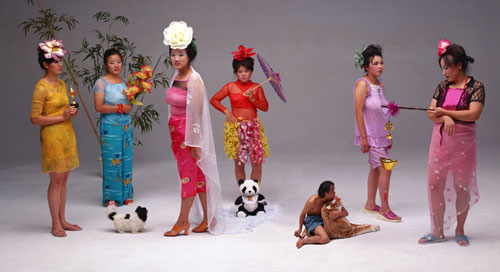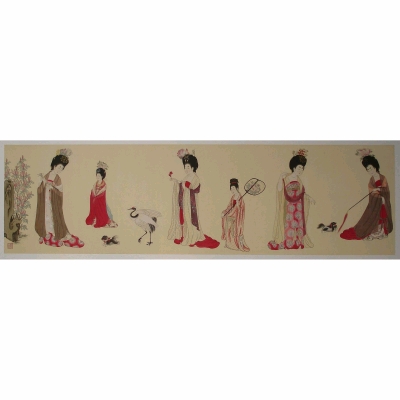Saturday, April 16, 2011
Friday, April 15, 2011
A Few Words on Neil Young
Neil Young has always been an inspiration to me. His songs are the songs I always come back to. Along with James Taylor, Neil is my constant partner. I use his music as medicine. When I need simplicity or explanation, I return to singing "Helpless" or "Heart of Gold". Last summer I lived with four very close soul mates in Santa Fe for a month. The experience was filled with new friends and new places and so much subconscious musical growth. One night I kept coming back to singing "Old Man" over and over at the top of my lungs. Beltin' it in the living room, the kitchen, my bedroom, the bathroom, everywhere. It was a catharsis for me, and a huge turning point. That song really came to me as a gift. I was finding my own voice in his songs. The more I sang it, the more I started to deeply understand and appreciate the transformative quality of music. It was the experience of singing a song I had sang a million times before, but had found, that as I was growing, it was growing along with me. The song, in the words of Bob Dylan, had "grown legs". I craved that quality of music in my own songs, and I still crave it every time I sit down to write.
Neil made me hungry and brought me back to what I had always known, but sometimes forget in the midst of the noise and the chatter that often surrounds making music. That making people feel connected and understood through honesty and sincerity IS the point of all of this music hubbub. Forget perfection and be real!
I'm gonna go listen to Neil Young now.
n.
Wednesday, April 13, 2011
Museum Response: The Getty
What I saw when I visited the Photography from the New China exhibit at the J. Paul Getty Museum was a culture's struggle with it's spiritual, historical and artistic identity.
a little history:
During the Cold War era following World War II, China was a closed society. The Cultural Revolution (1966–76) sought to destroy the artistic and intellectual heritage of centuries of imperial rule. Mao Zedong, the founder and longtime leader of the People's Republic of China, died in 1976. By 1980 his successor, Deng Xiaoping, had begun to pull back the curtain. However, China was still largely rural and poor, the Communist Party was omnipotent, censorship was severe, and artists remained under suspicion. The fall of the Soviet Union in 1989 and the uprising in Beijing's Tiananmen Square the same year caused further, more radical, change. Deng Xiaoping called for a new period of Reform and Opening.
 This newfound freedom of expression means a newfound voice for the Chinese artistic community, and they have a lot to say. Wang Qingsong's photographs struck me the most. His photographs speak of the new commercial attitude of Chinese culture, who has now surpassed the United States and Japan as the world's economic leader. Despite their economic leeway, the artist's work speaks of the east's cultural devotion to western lifestyle. They are wearing the west's clothes, they are eating its food, they desire and emulate its people, and they are losing their own cultural history along the way. The photographer communicates this by placing an overtly Arian figure in a rickshaw surrounded by the Chinese people, who come to his aid in defense of a figure who raise a Chinese flag. Some beg for his mercy, some fan him, and only one questions him. Interestingly enough, the photographer has placed himself as the driver the rickshaw, suggesting that all Chinese people are seduced by lust for the west and embrace it despite the elements of their identity they lose in return.
This newfound freedom of expression means a newfound voice for the Chinese artistic community, and they have a lot to say. Wang Qingsong's photographs struck me the most. His photographs speak of the new commercial attitude of Chinese culture, who has now surpassed the United States and Japan as the world's economic leader. Despite their economic leeway, the artist's work speaks of the east's cultural devotion to western lifestyle. They are wearing the west's clothes, they are eating its food, they desire and emulate its people, and they are losing their own cultural history along the way. The photographer communicates this by placing an overtly Arian figure in a rickshaw surrounded by the Chinese people, who come to his aid in defense of a figure who raise a Chinese flag. Some beg for his mercy, some fan him, and only one questions him. Interestingly enough, the photographer has placed himself as the driver the rickshaw, suggesting that all Chinese people are seduced by lust for the west and embrace it despite the elements of their identity they lose in return.
a little history:
During the Cold War era following World War II, China was a closed society. The Cultural Revolution (1966–76) sought to destroy the artistic and intellectual heritage of centuries of imperial rule. Mao Zedong, the founder and longtime leader of the People's Republic of China, died in 1976. By 1980 his successor, Deng Xiaoping, had begun to pull back the curtain. However, China was still largely rural and poor, the Communist Party was omnipotent, censorship was severe, and artists remained under suspicion. The fall of the Soviet Union in 1989 and the uprising in Beijing's Tiananmen Square the same year caused further, more radical, change. Deng Xiaoping called for a new period of Reform and Opening.
In the past 20 years, China's economy has made huge strides to become the second largest in the world. The rapid transition has meant great progress in the way art is taught, made, and talked about in China's flourishing urban centers. Artists who went abroad to find freedom of expression have returned to establish studios and provide mentoring. In an effort perhaps to quiet rebellion and encourage tourism, the ever watchful state now furnishes space, such as the former factory that is now the arts complex 798 in Beijing.
 This newfound freedom of expression means a newfound voice for the Chinese artistic community, and they have a lot to say. Wang Qingsong's photographs struck me the most. His photographs speak of the new commercial attitude of Chinese culture, who has now surpassed the United States and Japan as the world's economic leader. Despite their economic leeway, the artist's work speaks of the east's cultural devotion to western lifestyle. They are wearing the west's clothes, they are eating its food, they desire and emulate its people, and they are losing their own cultural history along the way. The photographer communicates this by placing an overtly Arian figure in a rickshaw surrounded by the Chinese people, who come to his aid in defense of a figure who raise a Chinese flag. Some beg for his mercy, some fan him, and only one questions him. Interestingly enough, the photographer has placed himself as the driver the rickshaw, suggesting that all Chinese people are seduced by lust for the west and embrace it despite the elements of their identity they lose in return.
This newfound freedom of expression means a newfound voice for the Chinese artistic community, and they have a lot to say. Wang Qingsong's photographs struck me the most. His photographs speak of the new commercial attitude of Chinese culture, who has now surpassed the United States and Japan as the world's economic leader. Despite their economic leeway, the artist's work speaks of the east's cultural devotion to western lifestyle. They are wearing the west's clothes, they are eating its food, they desire and emulate its people, and they are losing their own cultural history along the way. The photographer communicates this by placing an overtly Arian figure in a rickshaw surrounded by the Chinese people, who come to his aid in defense of a figure who raise a Chinese flag. Some beg for his mercy, some fan him, and only one questions him. Interestingly enough, the photographer has placed himself as the driver the rickshaw, suggesting that all Chinese people are seduced by lust for the west and embrace it despite the elements of their identity they lose in return.MOJO STONE E.P. HAS BEEN RELEASED
At long last, my band's E.P. can now be streamed from our website, as well as purchased from iTunes. ENJOY!
Or purchase the E.P. on iTunes:
Recent review of our music:
Mojo Stone is a hardworking up-and-coming band in Los Angeles, and Hatchet proves what fans have presumed since the band united, that these musicians mean business and that they're here to stay. These carefully composed songs are well presented in these recordings and demonstrate the potential that this band has to break out and become a national success. Buy the album, it will not be regretted! Each song has been carefully thought out and laboriously recorded to create an EP that exhibits their dedication toward creating unique and powerfully charged songs. It will likely leave a lasting impression, with songs that you'll find yourself humming for weeks after their have been heard. Jump on the bandwagon now so that you'll be able to say that you've been a fan since the beginning once their make it into the public arena!
-Carey Uhl
Subscribe to:
Comments (Atom)





